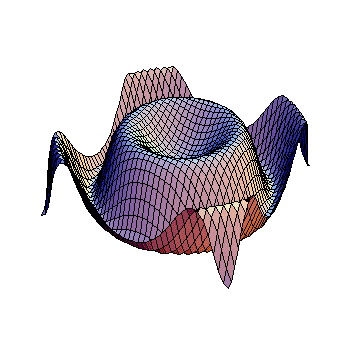Lim x->0 √1-cos 2x/√2x=? Thanks
3 Answers
Explanation:
Disclaimer: I don't know much about limits besides the general idea of what they are, but here's my take on this:
Looking at the limit:
Using l'hopital's method, we can see that both the numerator and denominator is approaching zero, so:
If
then
In this case
Therefore:
Now we have eliminated the problem of dividing by zero, so
Knowing that the Maclaurin series for
Then, we can say the limit is:
As the series continues infinitely, all the terms contain an
Explanation:
Using the substitution
Which, if you look closely, you'll see is the square root of a fundamental limit, one we know to be 0. So the limit as a whole is
(If you don't quite recognize it as a fundamental limit, you can tweak it so it involves the other fundamental limit


